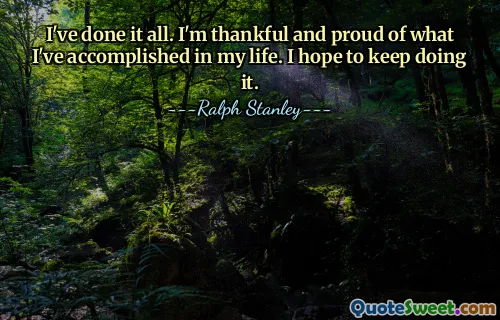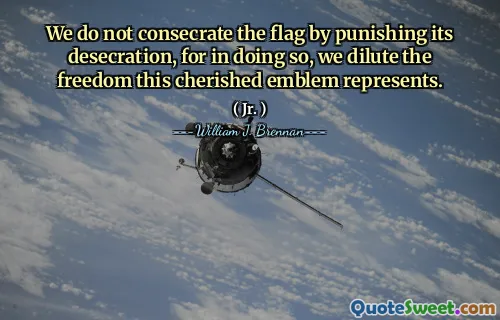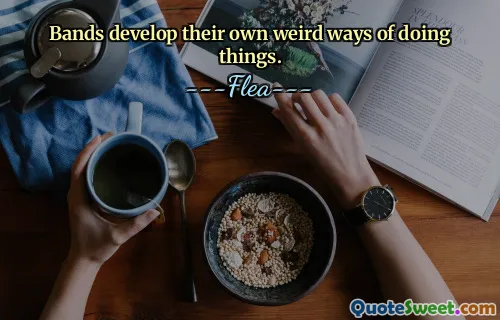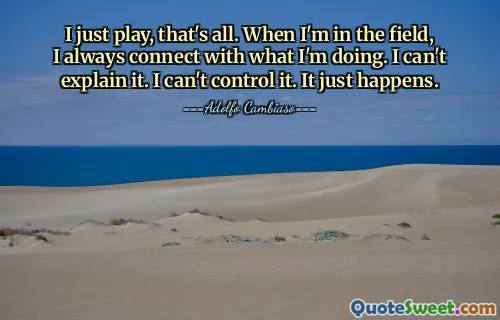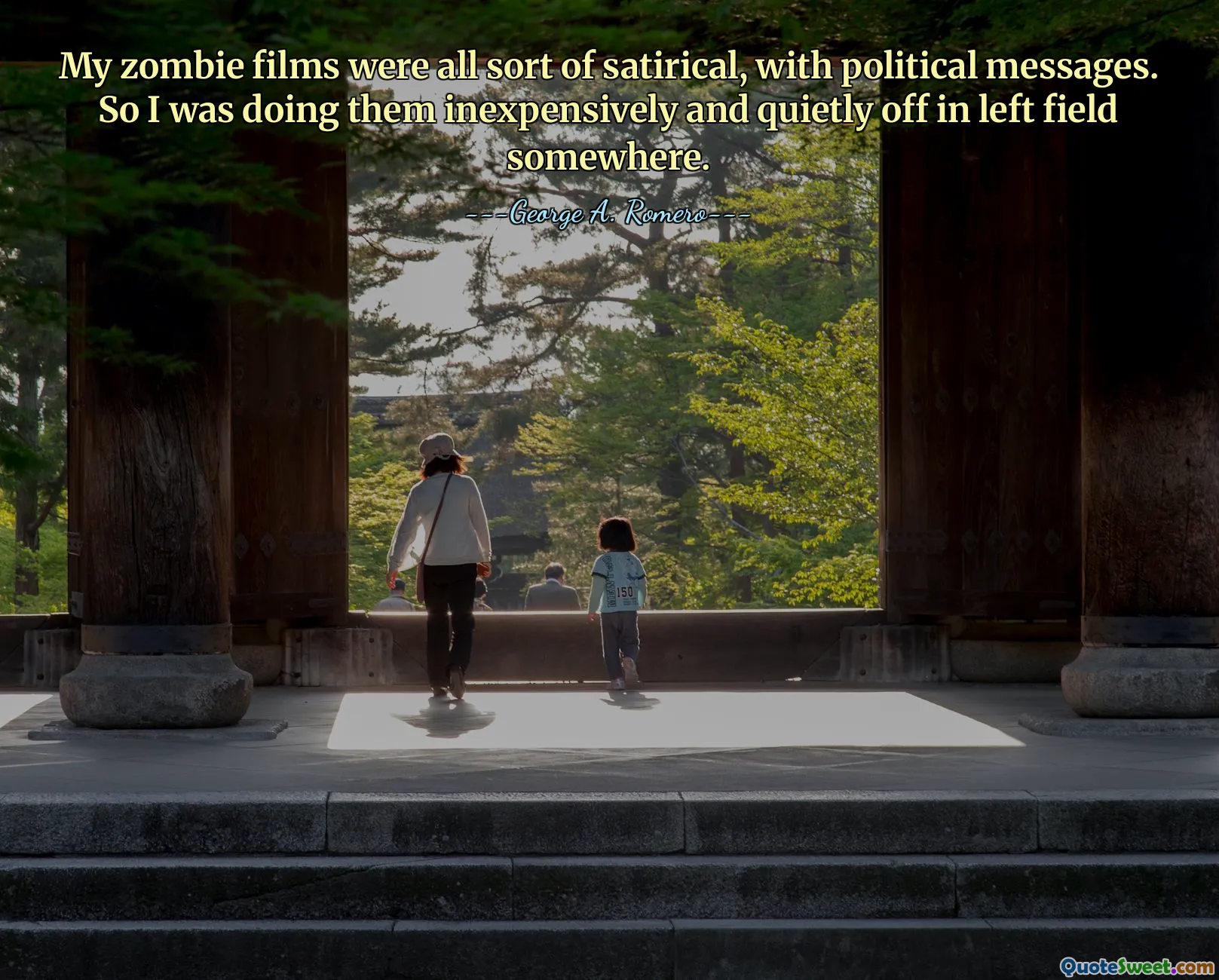
My zombie films were all sort of satirical, with political messages. So I was doing them inexpensively and quietly off in left field somewhere.
George A. Romero's perspective on his zombie films highlights a compelling blend of satire and social commentary woven into what might traditionally be considered genre entertainment. His assertion that his films contained political messages underscores a deliberate effort to elevate the narrative beyond mere horror or entertainment, transforming his works into vehicles for reflection on societal issues. Romero's approach of working quietly and inexpensively indicates a preference for creative independence and a desire to maintain artistic integrity without the pressures of mainstream commercial expectations. This method possibly afforded him the flexibility to experiment with innovative storytelling angles, infusing humor or irony into horror scenarios to critique or highlight political and cultural realities. His mention of 'left field' suggests a conscious effort to operate outside conventional norms, creating films that challenge audiences to think critically while still delivering visceral thrills. Romero's work exemplifies how genre filmmaking can serve as a powerful form of activism or commentary, proving that entertainment can also be meaningful and thought-provoking. In essence, his films embody a conscious effort to use the horror genre as a mirror to society, using satire and political messages to stimulate conversation and awareness among viewers. This approach demonstrates a deep understanding of art as a tool for critique and change, making his contributions to cinema not just about scares but about social consciousness.







